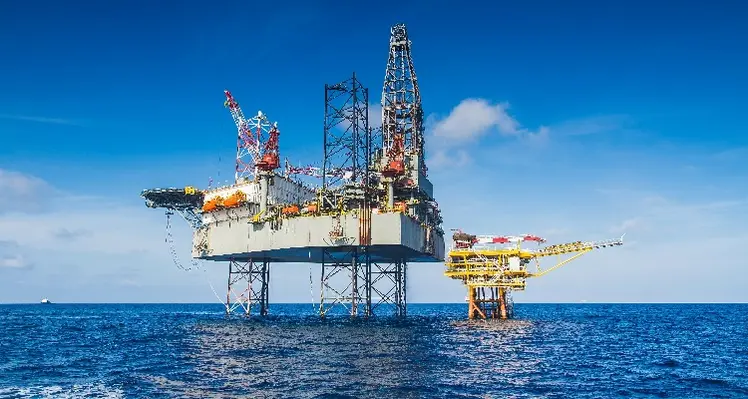The upstream majors are forecast to spend less on upstream exploration from 2020-2024 than in the previous four-year period, but are pushing into frontier areas and deeper waters, according to recent research from Rystad Energy
ExxonMobil, Shell, Chevron, BP, TotalEnergies and Eni will have spent on average a combined US$7bn each year between 2020 and 2024, compared to an average of US$10bn in the previous period, says Rystad. However despite budget constraints, frontier drilling is healthy, particularly deepwater projects in the Atlantic Margin, Eastern Mediterranean and Asia. Last year 112,000 sq km in acreage was awarded to major players — an increase of 20% from the previous year. Rystad notes that all awarded blocks were offshore, with 39% in the shelf segment, 28% in deepwater and the remaining 33% in ultra-deepwater.
In terms of global exploration activity, Rystad Energy predicts approximately 50 more deepwater and ultra-deepwater exploratory wells this year compared to 2023, accounting for around 35% of total wills drilled.
"As majors tighten their financial belts, they're cautiously venturing into deeper waters and re-evaluating their approaches for frontier exploration. While we anticipate them to appraise and mature their frontier acreages, we also expect them to continue to focus on familiar territory — regions with established expertise and existing infrastructure that offer quicker monetisation with lower risks,” said Santosh Kumar Budankayala, senior analyst at Rystad Energy.
Shell remains a key player in deepwater exploration and production, with significant projects planned this year, particularly in Southeast Asia, Africa and the Americas. BP is also pursuing deepwater exploration in Africa and the Americas. The company aims to drill multiple wells in Egypt, including appraisal drilling at the Raven gas and condensate field, as well as wildcat exploration drilling in the King Mariout offshore concession in the Western Mediterranean.
Chevron and Shell are pursuing plans to drill off the coast of Suriname in Block 42, which contains the Walker carbonate prospect, while Shell has a 30% nonoperating stake in Argerich-1, Argentina’s first offshore ultra-deepwater well.







